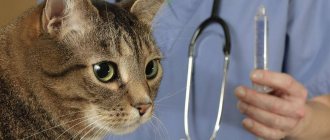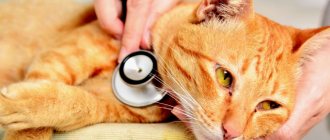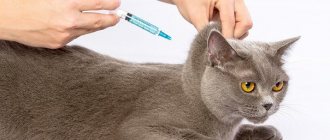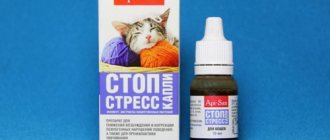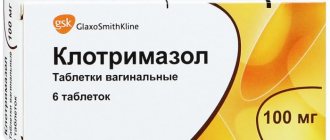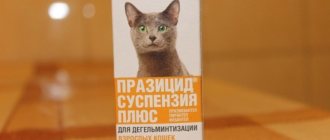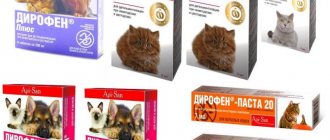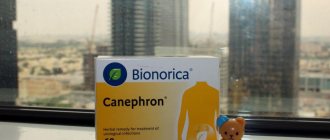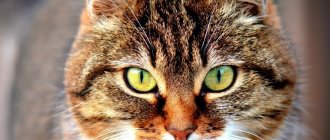In appearance, cats often seem calm, sometimes so much so that you want to learn this from them. But in reality, everything may be different: not all cats can easily cope with stress, they just can’t always clearly explain this to their owner. Thanks to veterinary medicine, today we have good sedatives for cats, so let’s look at this topic in more detail.
Indications for the use of sedatives
It is better to agree on the possibility and necessity of using sedative medications for each specific pet with the supervising veterinarian. Like people, cats can have individual intolerances and contraindications. In addition, the psyche of each animal has varying degrees of lability.
Doctors and animal psychologists consider the following situations to be sufficient grounds for giving a sedative:
- Leaving the house and moving by any type of transport. The animal can be frightened by sounds, smells, vibration, and temperature changes. Some animals happily travel with their owners, others experience extreme fear, rushing about and screaming.
- Change of residence or foster care. It is known that cats get used not only to their owners, but also to their surroundings. They consider every corner of the house truly their territory. Naturally, in cases where an adult animal has to settle into a new home, it will need additional support. Moving is not easy for both small kittens and adult cats.
- Visiting guests or a new family member in the house. Representatives of some breeds recognize only one owner or only those people who permanently live with them. The appearance of a child or noisy guests in the house can provoke the animal into aggressiveness or, conversely, severe fright.
- A neurosis of unknown etiology, which is manifested by obsessive states such as prolonged licking, scratching, overeating, hyperactivity or frequent yawning.
- Constant desire to mark territory. An animal under stress seeks to further secure a certain habitat for itself. Males can mark corners, and females relieve themselves in corners.
- During heat, some cats become very anxious and aggressive.
- When grooming, if combing the coat, cutting, washing and drying takes a lot of time or if the pet is nervous during grooming.
- For the period of participation in exhibitions. Large crowds of people, other animals, obsessive attention - all this can negatively affect your well-being.
Also read about stress in cats.
When you might need a sedative
global $ads_google;
//data-ad-slot=”2475549904″ $ads_google = empty($ads_google) ? false : true; ?> if ($ads_google == false) {?> $ads_google = true; ?> } ?> A sedative should not be used without good reason. If there is a chance to calm the cat in another way, it is better not to resort to drug intervention, even one based on a phytotherapeutic effect. The stress that the cat experiences from the arrival of guests could be neutralized by purchasing a soft house, in the niche of which the animal will feel protected. You can make such a house with your own hands.
In the cases described below, you may actually need the help of sedatives.
Mental disorders
Outwardly, such violations manifest themselves in endless licking of the fur, which can even lead to its thinning. The skin under the fur looks irritated from constant contact with saliva and tongue. In addition, the cat may hunt for a non-existent target, twitch and jump for no reason, and constantly meow unmotivated.
Transporting a pet
During transportation, especially when the cat is not accustomed to this from early childhood, the animal may become stressed. If in a car the problem comes down only to a new way of moving, then public transport can easily cause panic in the cat. You will have to focus on your pet; there are also those who are just happy to go for a ride.
If the standard behavior changes, it will have to be corrected with medication. When planning a move, it is better to give your pet medicine in advance, especially if the instructions for the sedative drug say that it has a cumulative effect. It is better to learn in advance how to properly transport cats in a carrier.
Stress
Stress occurs for a number of reasons, including part of mental disorders and the circumstances of the pet’s living conditions. In many cases, it is better to consult a specialist and find the cause of the stressful condition. Probably, if you eliminate it, you won’t need to take medications.
Grooming
Grooming is highly valued by owners, but animals are not always as happy as visiting exhibitions. If large-scale procedures are planned, you can treat the cat with sedatives.
Castration
Castration and sterilization, as a surgical intervention in the body, also cause the cat to experience serious stress, both on the physical and mental level.
global $ads_google; //data-ad-slot=”2475549904″ $ads_google = empty($ads_google) ? false : true; ?> if ($ads_google == false) {?>
$ads_google = true; ?> } ?>
Aggression
Fear, anxiety, and phobia can result in aggressive behavior. Aggression that is not typical behavior must be corrected.
Estrus
Against the background of estrus, aggression and hypersexuality may also occur, which can be very difficult to tolerate. Activation of the sexual instinct affects the well-being of pets, sometimes causing them to actually suffer.
Mr. Cat recommends: principle of operation
There are two types of sedatives for cats:
- Soft herbal homeopathic preparations of prolonged action. They contain extracts of soothing herbs. They carefully relieve tension from the nervous system and act cumulatively, that is, they achieve the greatest effect after a few days of regular use.
- Medicines in tablets and injections that act instantly, but at the same time have a number of side effects and are not always safe.
The use of chemicals is a last resort when the benefit outweighs the potential risk to the cat's health.
Types of sleeping pills
Owner reviews
Albina, owner of a 5-year-old cat:
“Our cat is big, like a calf, but terribly shy. As soon as guests are on the threshold, he hides under the blanket on the bed and other secluded places. When I got very sick and had to go to the clinic every day for injections, I started throwing real hysterics. The vet recommended Fitex. The cat really became calmer. They also took drops during renovations, when workers were constantly in the house. He didn’t let strangers pet him, but he walked around the house with an important air and didn’t hide.”
Christina, owner of a British cat:
“Until they could do sterilization, the estrus period turned into real agony. At first, on the advice of the pharmacist, they tried to give Kot Bayun, but it did not help. Fitex turned out to be much more effective. After two days, the cat stopped meowing pitifully all day long, calling for suitors. The main advantage is the natural composition. No harm to health."
Marina, owner of a non-pedigreed cat:
“Although our cat is without a breed, she has a lot of character. You can't leave her at home on her own. She immediately starts doing dirty tricks, so you always have to take her with you. She used to be restless on the road until we started giving Fitex. Now he tolerates trips well, although afterwards he sometimes shows his pranks. Overall a good product."
Sleep aids
Sometimes it is not enough to simply calm your pet. A long flight or other transportation will be frightening and nerve-wracking, even in a relatively calm state. In this situation, it is advisable to give a sleeping pill designed specifically for cats. After an intramuscular injection, tablets or drops, they fall into a deep, restful sleep.
The dosage of the drug should be selected by the doctor based on the weight, breed and individual health characteristics of the pet. Such manipulation is a last resort, and an overdose is deadly.
According to the duration of action, sleeping pills are divided into:
- Gentle, short-acting, which puts the cat to sleep for 2-3 hours. They can be taken for transport or grooming.
- Medium-term muscle relaxants, analgesics and sedatives indicated in the treatment of seizures, borderline mental states or in preparation for deep anesthesia. Their effect lasts about five hours.
- Long-term narcotic drugs used in surgery and veterinary procedures. These substances are available only with a doctor's prescription and are not suitable for home use. During anesthesia, the cat must be observed by a specialist in order to prevent possible respiratory or cardiac arrest in time.
Recommended sedatives
There are sedatives for cats that have worked well with owners and are approved by veterinarians.
Herbal preparations
Herbal preparations with a mild and gentle effect on the nervous system of pets include:
- Dragee Relax Plus - contains lemon balm and motherwort extracts, is non-addictive, calms the cat, helps eliminate spasms and unpleasant symptoms of seasickness.
- Stop stress drops with nootropics and sedative essential oils. This remedy is recommended for aggressive, restless animals prone to chronic stress and inappropriate behavior in it.
- Fitex drops are a liquid based on medicinal herbs. Not recommended for adults with hypotension and small kittens.
- Zoomir anti-stress tablets contain not only a sedative, but also vitamins, minerals and micronutrients that have a beneficial effect on the cat’s well-being.
- Feliway spray with artificial pheromone - gently soothes, but has no odor discernible to the human sense of smell.
- Fospasim injection liquid and drops are based on natural ingredients - they have a quick effect and are suitable for cases when the cat has to travel for a long time.
- Tablets and tincture Kot Bayun are a natural remedy with prolonged action. Contraindicated for kittens under one year of age.
- Serene Um dietary supplement contains micronutrients and amino acids that have a beneficial effect on the nervous system of cats and is prescribed as a supporting agent during adaptation or a long course of treatment.
Synthetic products
Synthetic sedatives should only be used after consultation with a veterinarian. He will select the optimal dosage and course duration.
Chemical drugs include:
- Xylazine is a derivative of thiazine, it quickly calms a cat in a state of acute stress, but has many contraindications.
- Amitriptyline for intravenous and intramuscular injections - for emergency assistance to animals in an attack of aggression or during a panic attack.
- Buspirone in injections and tablets is suitable for treating pets in a state of long-term neurosis and obsessive states.
- Diazepam is a fast-acting sedative for animals with hyperactivity and nervous overexcitation.
When is it better not to give sedatives?
Each drug may have its own contraindications, which can be found in the instructions. But there are also general conditions that prohibit the use of sedatives and suggest another way to calm the cat.
Do not use sedatives
:
- during
pregnancy ; - while feeding offspring;
- up to 12 months of life;
- with increased sensitivity to the composition of the product;
- if you are allergic to the components of the medication;
- with hypotension;
- for diabetes mellitus, if the composition contains sucrose;
- for problems with the urinary system.
If you neglect such recommendations, serious problems are possible, including various physical ailments and the animal’s complete loss of interest in life.
global $ads_google; //data-ad-slot=”2475549904″ $ads_google = empty($ads_google) ? false : true; ?> if ($ads_google == false) {?>
$ads_google = true; ?> } ?>
Sleeping pills
Putting an animal into medicated sleep must be approached with a high degree of responsibility. You must understand that this is an emergency measure and it is better to resort to it under the supervision of a doctor.
The most commonly used means include:
- Ventranquil is a powerful tranquilizer that is often used to transport felines. It not only soothes you for a long time, but also helps cope with motion sickness.
- Butorphanol is a sleeping pill that can help an animal in the acute period of neurological diseases, with phobias and obsessive-compulsive disorder.
- Meditin is used for sedation and gentle euthanization before intravenous or mask anesthesia and surgical interventions, as well as after them for pain relief, muscle relaxation and sedation.
- Relanium is a remedy known in human psychiatry. A powerful drug used in emergency situations for large and healthy cats.
Side effects
You cannot rely on sedatives as a panacea or remedy for any stress in a cat. Just like humans, pets' nervous systems are adaptable. Sometimes you need to let your pet experience frustration and learn life lessons from it. Helping a kitten with your attention, affection and care means laying a brick in the foundation of reverent affection and friendship.
In addition, any, even the mildest, medicine has a number of contraindications and side effects. They can cause allergies or addiction, disrupt intestinal motility, and provoke the development of gastritis.
The stronger the drug, the greater the likelihood of its negative effect on the heart, blood vessels and nerve fiber.
There is always a risk of unpredictable individual reaction and death. It is advisable to consult a veterinarian before use.
What not to use on cats
Many cat owners prefer home remedies to help eliminate depression and nervousness in their beloved furry animal. To prepare a home remedy, various plants and herbs are used, such as mantle, valerian root, hop cones, hormel, belladonna-homaccord, dill and oregano.
However, for most cats, certain herbs do not have a calming effect, but, on the contrary, have an irritating effect. Valerian root is an irritant. The plant component can cause hallucinations in the animal, as well as increase sexual desire. An addiction forms to it, even from the first dose. In case of overdose, an epileptic seizure may occur.
Felines are overly sensitive to the smell of catnip. Nepetalactone essential oil, which is contained in this plant, causes strong stimulation. However, mint is not as harmful as valerian, and it is often added to certain dietary supplements and vitamin complexes for cats.
When preparing a homemade decoction, you need to maintain the correct proportions, which is quite difficult. That is why it is recommended to use pharmaceutical products that are tested and harmless to the animal.
Rules for taking sedatives
At all stages of sedative therapy, it is necessary to monitor the cat’s condition and follow a number of safety recommendations:
- Carefully read the instructions, analyze the composition, and monitor the expiration date.
- Do not self-medicate and do not exceed the dosage prescribed by your doctor.
- Provide your cat with sufficient fresh air, especially after using chemical sleeping pills.
- Many drugs lead to rapid dehydration, so the animal should be given water more often.
- Monitor the general condition of the pet. If alarming symptoms are detected, such as convulsions, drooling, foaming at the mouth, a drop in body temperature, pulse, or respiratory depression, you need to take your pet to a veterinary hospital as soon as possible.
Symptomatic treatment and procedures
If the cat has become lethargic, then there is no need to try to play with it, force feed it or pet it. It is important to listen to the animal and take into account its needs.
Perhaps the animal refuses its usual food. You can try offering a different brand of food or food from the table: fermented milk products, boiled meat or fish with porridge. You can offer your animal fresh greens.
If your cat's apathy is associated with stress and depression, you can give her a few drops of valerian or motherwort.
Fresh, cool air often helps relieve lethargy. Especially if it is very hot outside or indoors. The cat becomes lethargic and hides from the heat in a cool place (under the bed, behind a closet). If it’s winter outside, try to ventilate your apartment properly: this is useful not only for animals.
